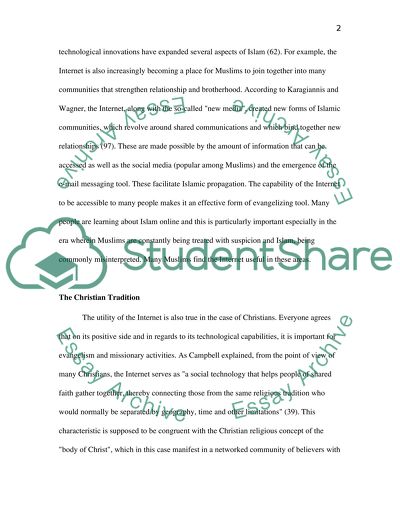Cite this document
(“The Internet from Christian and Islamic Perspectives Research Paper”, n.d.)
Retrieved from https://studentshare.org/religion-and-theology/1450086-the-internet-in-islamic-point-of-view-and-the
Retrieved from https://studentshare.org/religion-and-theology/1450086-the-internet-in-islamic-point-of-view-and-the
(The Internet from Christian and Islamic Perspectives Research Paper)
https://studentshare.org/religion-and-theology/1450086-the-internet-in-islamic-point-of-view-and-the.
https://studentshare.org/religion-and-theology/1450086-the-internet-in-islamic-point-of-view-and-the.
“The Internet from Christian and Islamic Perspectives Research Paper”, n.d. https://studentshare.org/religion-and-theology/1450086-the-internet-in-islamic-point-of-view-and-the.


